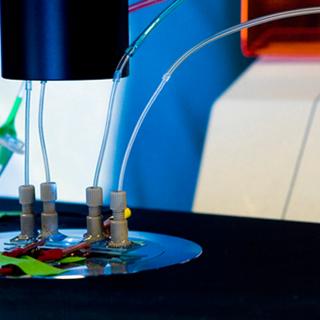
A number of BMSE faculty work in the field of bioengineering, approximately equally split between faculty who's research focus is on solving biomedical problems via the application of traditional engineering (microelectronics, microfluidics etc) and those who are re-engineering biological materials and systems to better suit them for specific end applications. To these ends, BMSE faculty have pioneered work on minimally invasive trans-dermal drug delivery, on the development of microfluidic methods for massively parallel cell counting and screening, and on improving our understanding of the chemistry and physics underlying biological materials.












